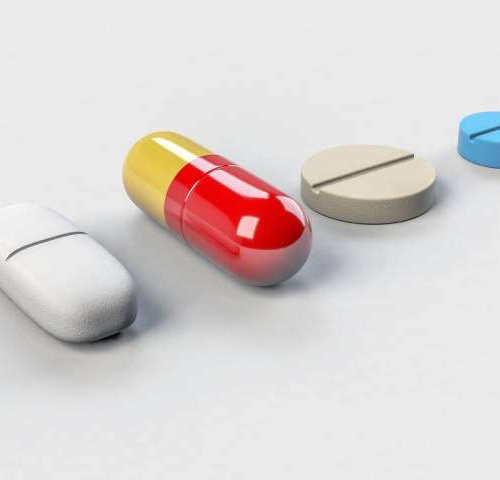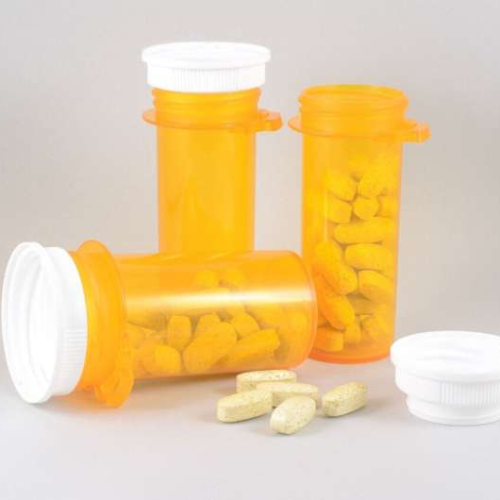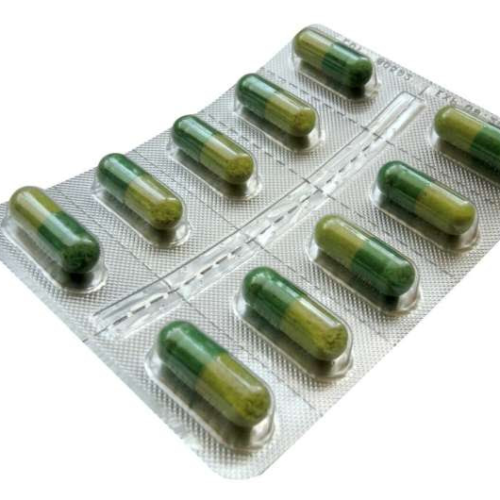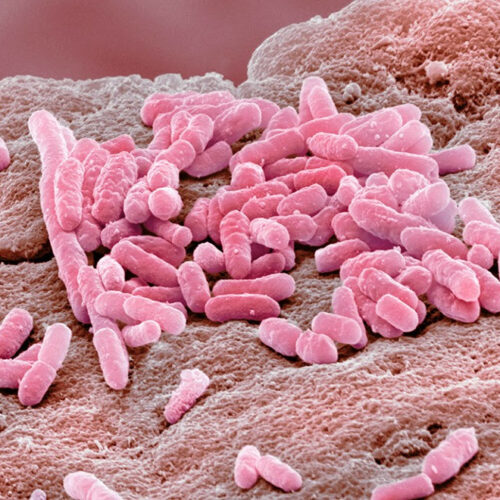September 23, 2024 by European College of Neuropsychopharmacology Credit: Wikimedia CommonsResearchers have found that SSRI (selective serotonin reuptake inhibitor) antidepressants have the potential to improve certain cognitive functions, such as verbal memory. They measured brain function in patients before and after taking the SSRI, escitalopram, and correlated this to a drop in the level of...
Tag: <span>antidepressants</span>
Study shows psilocybin gives comparable long-term antidepressant effects to standard antidepressants
September 21, 2024 by European College of Neuropsychopharmacology Credit: CC0 Public DomainA direct comparison between the experimental psychedelic drug psilocybin and a standard SSRI antidepressant shows similar improvement of depressive symptoms, but that psilocybin offers additional longer-term benefits. The comparison, between psilocybin (the active ingredient in “magic mushrooms”) and the SSRI escitalopram gave similar long-term...
Risky combinations of psychiatric drugs prescribed for young patients
September 5, 2024 by Rutgers University Credit: Pixabay/CC0 Public DomainA new study reveals that young patients treated with psychiatric medications receive potentially dangerous combinations with concerning frequency. Researchers from Rutgers Health and other institutions recently analyzed New York State Medicaid records for more than 141,000 patients receiving any psychiatric medication. Nearly 400 of them had...
Eight Common Antidepressants Ranked by Weight Gain Potential
Medscape Medical News Eve Bender July 02, 2024 Eight commonly used antidepressants have been ranked by their weight gain potential. Results of a large observational study showed small differences in short- and long-term weight change in patients prescribed one of eight antidepressants, with bupropion associated with the lowest weight gain and escitalopram, paroxetine, and duloxetine...
One in six people who stop antidepressants will experience discontinuation symptoms as a direct result, says study
JUNE 5, 2024 by Lancet Credit: Pixabay/CC0 Public DomainFor someone stopping taking antidepressants, the risk of experiencing one or more discontinuation symptoms (also called withdrawal symptoms), such as dizziness, headache, nausea, insomnia and irritability due directly to stopping the medication is 15% (equivalent to one in six to seven people), according to a systematic review...
Millions take antidepressants for chronic pain—but there’s little evidence the most commonly prescribed drugs work
Hollie Birkinshaw and Tamar Pincus, The Conversation Credit: Pixabay/CC0 Public Domain About 1 in 5 people globally live with chronic pain, and it is a common reason for seeing a doctor, accounting for one in five GP appointments in the UK. With growing caution around prescribing opioids—given their potential for addiction—many doctors are looking to...
How antidepressants help bacteria resist antibiotics
Liam Drew In the presence of antidepressants, the Gram-negative bacteria, E. coli, can fend off antibiotics. Credit: Steve Gschmeissner/Science Photo Library The emergence of disease-causing bacteria that are resistant to antibiotics is often attributed to the overuse of antibiotics in people and livestock. But researchers have homed in on another potential driver of resistance: antidepressants....
27 of 39 Updated guideline recommends CBT or second-generation antidepressants for adults with major depressive disorder
by American College of Physicians Credit: Unsplash/CC0 Public Domain The American College of Physicians (ACP) has issued an update of its guideline with clinical recommendations for nonpharmacologic and pharmacologic treatments of adults in the acute phase of major depressive disorder (MDD). In the updated clinical guideline, ACP recommends the use of either cognitive behavioral therapy (CBT) or second-generation antidepressants...
Scientists explain emotional ‘blunting’ caused by common antidepressants
by University of Cambridge Credit: CC0 Public Domain Scientists have worked out why common anti-depressants cause around half of users to feel emotionally “blunted.” In a study published today in Neuropsychopharmacology, they show that the drugs affect reinforcement learning, an important behavioral process that allows people to learn from their environment. According to the NHS, more...
The chemical imbalance theory of depression is dead, but that doesn’t mean antidepressants don’t work
by Christopher Davey, The Conversation Credit: Shutterstock The chemical imbalance theory of depression is well and truly dead. A paper by Joanna Moncrieff and colleagues, long-time critics of the effectiveness of antidepressants, has caused a splash. The paper provides a summary of other summaries that confirm there is no evidence to support the idea that...








